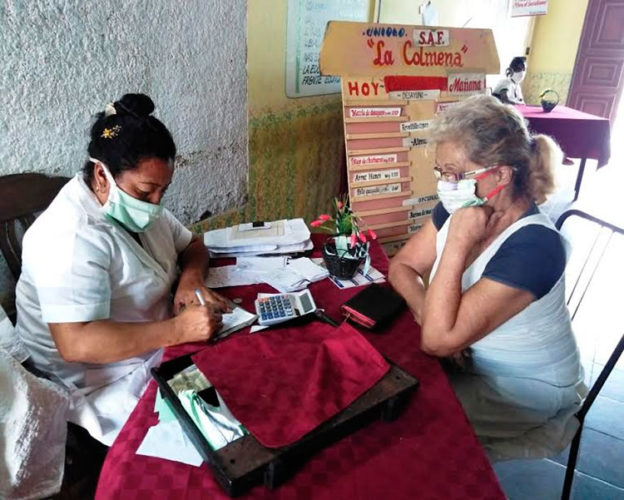
Among rumors, denials and certainties, the issue of Social Security for Cubans travels, a security that although it strengthens the family and the approved monetary benefits alleviate urgent needs, they are not exempt from difficulties nor do they fully solve the economic fragility of poorest families.
It is known that the public pension system is based on solidarity and financed by means of distribution, with the State as the maximum responsible for its application, as this is an achievement of the Socialist Revolution.
It is, moreover, an Independent Budget, with financial resources, contributions from employers, self-employed and state workers; and transfers from the Central State Budget for the imbalance between income and expenses.
Social assistance in its different modalities: eventual, temporary and exceptional, with types of pension based on age, total disability, due to death of the worker (or survivor's pension) or partial disability, modalities of perennial validity and scrutinizing all what is not going well.
Although nothing is perfect, at the end of January, the more than 22,000 who were already protected by the assistance budget received an increased amount, as established in Decree 25, of the Council of Ministers, and Resolution 47 (R-47) of the Ministry of Labor and Social Security (MTSS), Ivette Moya Pupo, director of Labor and Social Security in the capital, points out.
In general, more than 30,000 people were protected in the country due to economic insolvency in the first month after the monetary ordering process was implemented, then that figure decreased, says Belkis Delgado Cáceres, director of Prevention, Assistance and Social Work of the MTSS . In the 2021 Budget Law, 3,366 million pesos were allocated to cover assistance benefits, and a reserve of 716 million for people and groups vulnerable to the impact of the Planning Task.
For this reason, as President Miguel Díaz-Canel Bermúdez directed, we must continue reviewing to change everything that should and can be changed. A group of prices that were in the beginning have already decreased. In any process of economic adjustment, as in life itself, the criterion of truth is always in practice”, states the Mathematics graduate.
From the salary reform, an attempt is made to rethink the issue of social assistance, for the sake of fairness, of the balance in knowing exactly whom the home assistant services will be directed to, whose expenses fall on the state coffers. There are mechanisms to detect irregularities in the execution of healthcare expenses, as well as appeal and complaint channels for those who feel their rights to receive protection have been violated.
On more than one occasion, the First Secretary of the Party has warned about the need for everything to work well and to tackle problems in time; look for mechanisms, transform things, look for the professional we need, and move people's conscience.
Legality also puts order in the matter and broadens the range: The right of mothers of children with severe disabilities is guaranteed in the "Procedures for the granting, execution, control and review of social assistance benefits", of 2009; and that later expanded its scope in the "Procedures Manual for prevention, assistance and social work" of 2012. Both, issued by the MTSS, instrumented the implementation of two legal norms published in the Official Gazette of the Republic of Cuba: Law No. 105 on Social Security, of January 22, 2009, approved by the National Assembly of People's Power; and Decree No.283 Regulation of the Social Security Law, of April 24, 2009, of the Council of Ministers.
In the case of the aforementioned Manual, it maintained the same requirements as the previous one: “[…] the mother was employed at the time of the child's birth, or when the child acquired the disability; has abandoned his employment relationship due to the need to dedicate himself to his care; or the degree of disability of the child prevents him from accessing the national education system […]».
Regarding the characteristics of this protection, the Manual kept the same precepts: «Mothers protected with this modality receive a temporary monetary benefit from social assistance equivalent to their last salary earned, except for stimulation in freely convertible currency. Mothers have the right to receive the increase in the salary scale that is made as part of the salary policy that is applied, excluding the new additional payments that are approved.
Unlike the previous one, the Manual grants greater benefits to these mothers, insofar as they are recognized “the period dedicated to the care of their children as time of service for the purposes of retirement. In addition, if it is verified that the family nucleus presents economic insufficiency, an exceptional temporary monetary benefit is approved.
